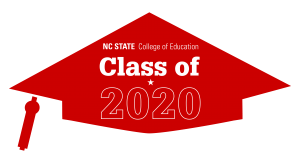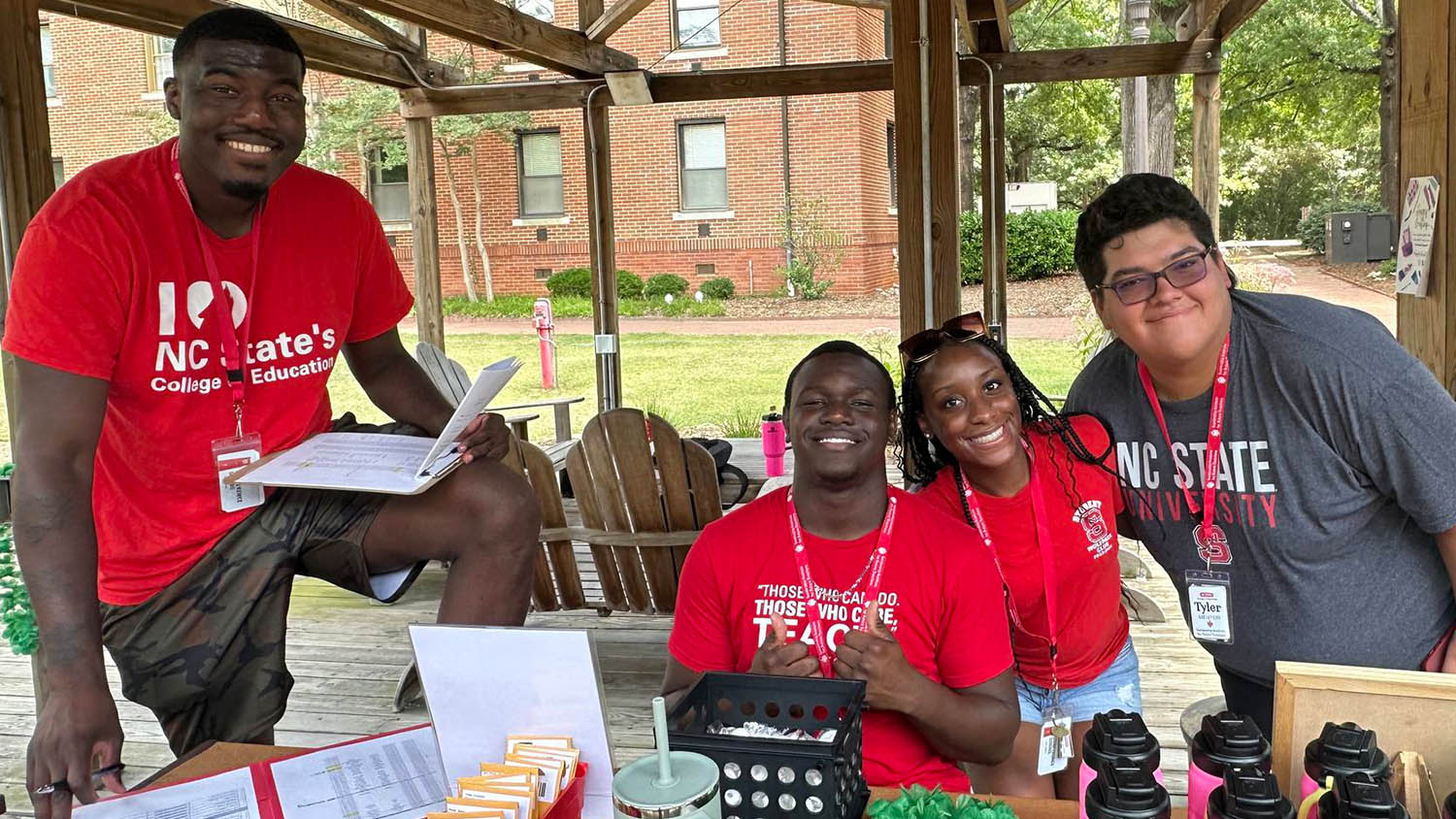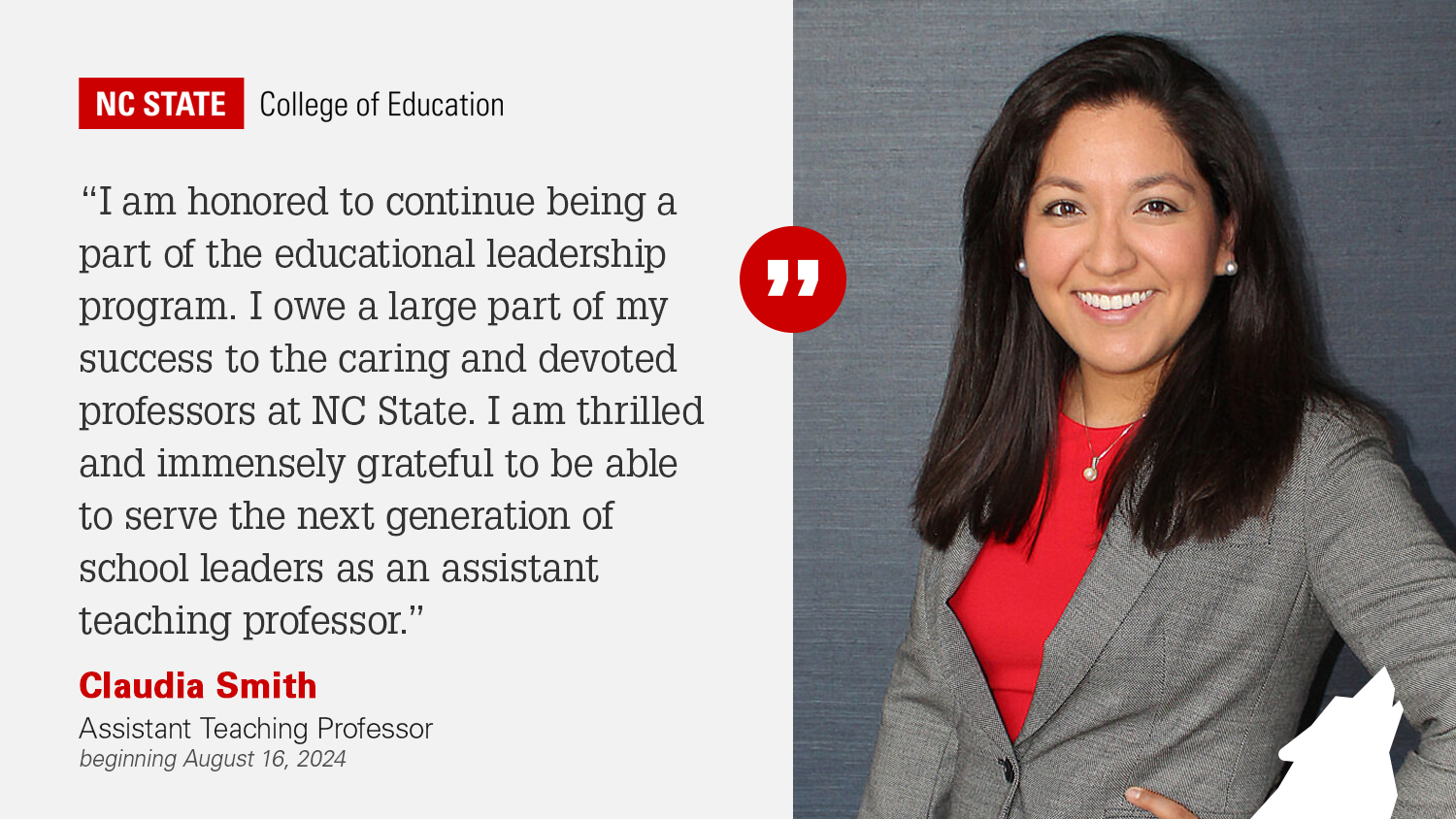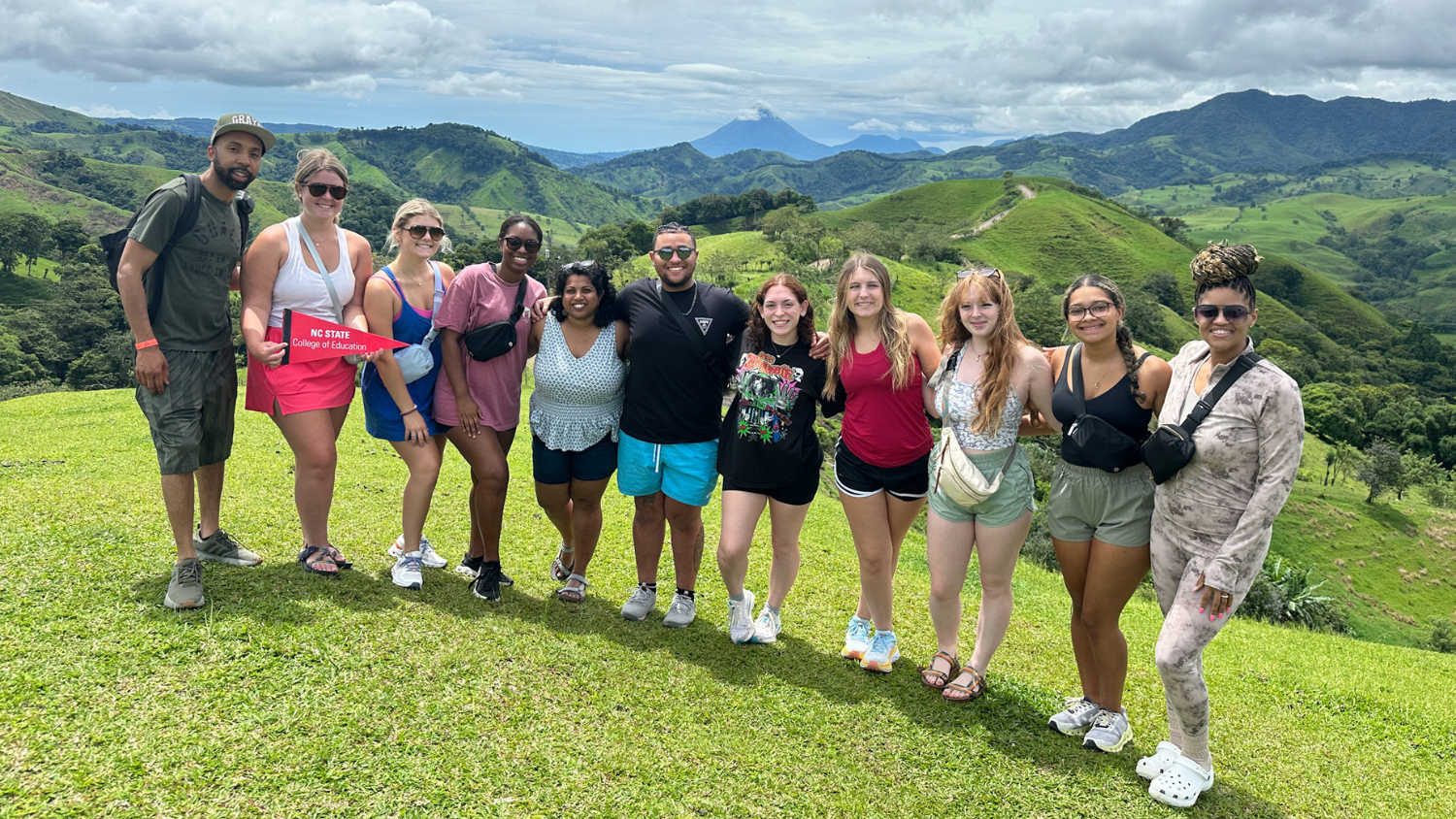Meet Demah Payne ‘20PHD: ‘I Am Passionate About Helping Others Who Have Mental Health Concerns’

This is part of a series of profiles on students who are graduating in December 2020.
Demah Payne ‘20PHD has always been intrigued with the mind and enjoyed understanding why and how people think the way they do. That interest, combined with his passion for helping people with mental health concerns, led him to pursue a Ph.D. in counseling and counselor education from the NC State College of Education.
Learn more about Demah Payne.
Hometown: Durham, North Carolina
Area of Study: Counseling and Counselor Education
Activities (Research or Extracurricular): My research focused on school counselors and licensed clinical mental health counselors who are dual licensed as both school counselors and LCMHC. My research highlighted how these dual licensed counselors navigate working with children and adolescents, and how they balance between the dual roles and functions.
Why did you choose the NC State College of Education?
The NC State College of Education is an extremely reputable and prestigious program. Many professionals speak very highly of the program. The program was also in an ideal location.
Why did you choose your area of study?
I chose counseling and counselor education because I have always been intrigued with the mind. I also enjoy understanding why and how people think the way they do. I also am passionate about helping others who have mental health concerns as well.
What did your dissertation focus on and why did you choose that topic?
My dissertation topic focused on the experiences, perceptions and practices of dually licensed counselors working with youth that have mental health concerns. I chose this particular topic because I wanted to explore how dually licensed counselors balance having two professional roles (school and LCMHC) while working in different counseling settings and how that impacts the role and functionality when working with youth who have mental health concerns.
What was your own experience like, balancing your Ph.D. work with your work as a full-time counselor?
Certainly challenging and stressful at times. There were times where I would stay late at work to complete readings and assignments that were due. Time management was key during this particular time, finding times throughout the workday to stay updated on assignments was essential. My schedule as a full-time counselor rarely prohibited me from attending class during the evening, so that was a blessing. My mentality during that time was to put forth my best effort in both my Ph.D. work and my work as a full-time counselor.
What do you hope to accomplish in your field after graduation?
I hope to obtain a teaching position, collaborate with other great counseling professionals on various research topics, explore private practice and explore higher education positions (clinical director, dean of students).
What’s your next step? What do you have planned after graduation?
Two weeks prior to my dissertation defense, I was able to obtain a position at Duke University working as a licensed clinical mental health counselor/referral and case management liaison, so I’m ecstatic about the opportunity to learn and grow in the higher education counseling field. I am currently applying to adjunct and visiting professor positions. I also hope to explore the possibility of private practice sometime next year.
How has the College of Education prepared you for that next step?
I have received a great deal of support and confidence from the College of Education. They provided me with tools and resources to be successful in my future endeavors. Through the rigorous scholarly courses, I believe the College of Education has prepared me to excel in teaching academia.
Do you have a favorite memory from your time in the College of Education?
The family environment and atmosphere of the College of Education is my favorite memory. Due to COVID-19 and everything being virtual, I truly appreciate the time spent with my colleagues in our face-to-face classes where we were able to laugh, learn, challenge and grow amongst one another.
Tell us about an experience you had with the College of Education that had the biggest impact on you or your career.
An experience with the College of Education that had the biggest impact on me was the feeling I had sitting in my first doctoral class. It was during ECD 731: Career Development Theory and Research. I can recollect sitting in the class and feeling like I made it, but also being unsure if I was really supposed to be in this program. That’s when I learned the definition of imposter syndrome. As I slowly continued throughout my doctoral journey, my confidence began to grow and I began to realize that I was worthy of being in the counseling and counselor education program.
Why did you choose education?
I chose education because I believe it is one of the most powerful tools anyone can have in the world. It opens countless possibilities and it is something that no one can take from you. I believe that having a powerful education can allow one to change the world, or inspire someone who can.
- Categories:


